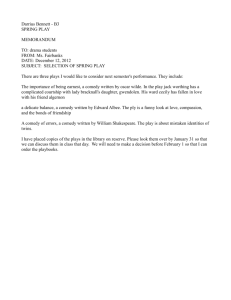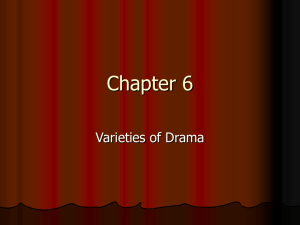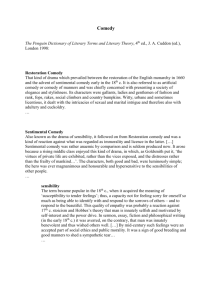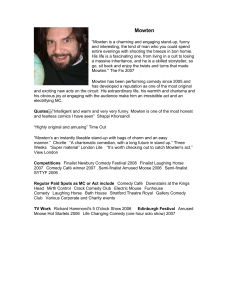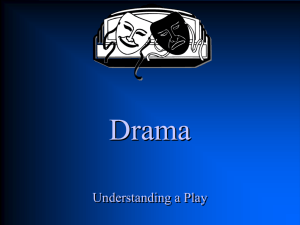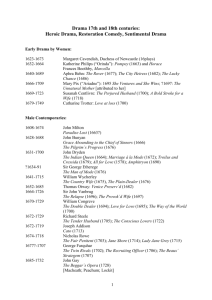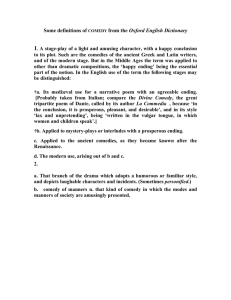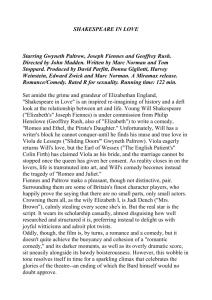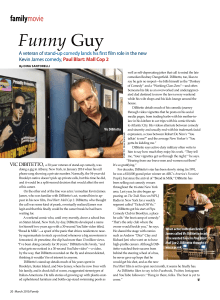Dramatic Genres
advertisement
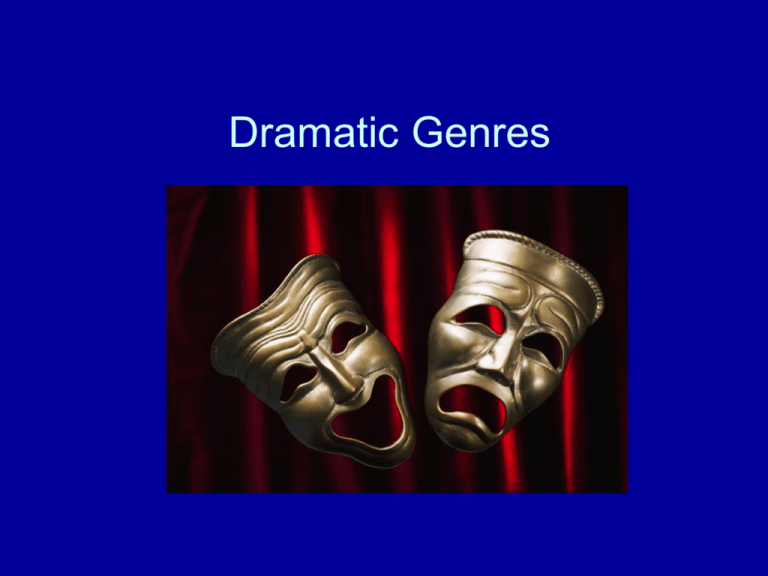
Dramatic Genres Genre • A French word meaning “category” or type • Reflects the writers point of view towards the subject • In Greek drama there were only two genres: Tragedy and Comedy Classical Tragedy and Comedy Tragedy: • The protagonist goes down in defeat • The protagonist is the “hero” of the play Comedy: • The protagonist overcomes the obstacle and achieves his major objective • Major objective is the character’s spine Protagonist & Antagonist • Protagonist: The play’s major character – the “good guy” or “hero” • Antagonist: The protagonist’s major opponent – the “bad guy” or “villain” • The hero may not be heroic. Shakespeare’s Richard III Popular definition of Drama • A serious, but not tragic, play dealing with middle or lower class characters • Typically has a happy ending • Also known as a drame bourgeois Popular definition of Comedy A light amusing play with a happy ending “Ladder of Comedy” 1. 2. 3. 4. 5. 6. Comedy of ideas Comedy of character Comedy of wit Comedy of situation Comedy of pain (slapstick) The dirty joke, bathroom humor High Comedy • • • • • • Subject is serious Provokes “thoughtful laughter” Comedy of smiles Plot is possible and probable Humor grows out of the character Usually a realistic portrayal of life G. B. Shaw Arms and the Man Low Comedy • • • • • Objective is “riotous laughter” Comedy of the belly laugh Plot is possible, but not probable Character is dominated by the situation Requires little or no thought by the audience • Believable for the moment I Love Lucy Farce • A wildly humorous play which emphasizes plot (or situation) over character. • Low Comedy Melodrama • Serious drama with a trivial theme • Excitement through physical action Movie Melodrama DocuDrama • Dramatization of an actual event • Uses real names, dates and places • Often drawn from court transcripts or committee hearing reports Music & Theatre • Opera is entirely sung • Dance tells a story through music and movement • The Musical includes both song and dialogue
